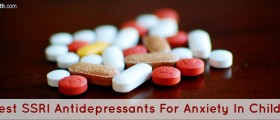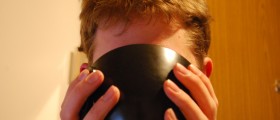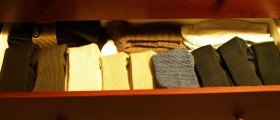
Compulsive eating disorder can be defined as addiction to the food. This disorder is also known as a binge eating. The person suffering from compulsive eating syndrome goes through episodes of uncontrollable eating. These episodes are most commonly accompanied by anxiety. The problem is that the person simply does not stop eating even though he/ she becomes uncomfortably full. After eating too much the person feels guilty and depressive. People suffering from compulsive eating disorder usually do not vomit deliberately which is typical for people suffering from bulimia. They also do not use laxatives and tend not to exercise excessively.
Causes of Compulsive Eating Disorder
Similarly to other eating disorders such as bulimia and anorexia, compulsive eating disorder is associated with psychological disturbances. Majority of people suffering from this eating disorder use food as a way to hide from emotions, a way to fill a void inside or this way they try to cope with daily stresses. Many of them also feel they are not good enough and suffer from low self esteem. But after eating they tend to feel even worse. It is not unusual that people suffering from compulsive eating disorder actually have a constant need for love and confirmation.
Symptoms and Signs of Compulsive Eating Disorder
People suffering from this disorder are generally overweight and have history of weight fluctuations. They are also aware of the fact that their eating habit is not normal.
These people can consume large amounts of food even when not hungry at all. Furthermore, they eat more rapidly and often eat alone. Several more symptoms include weight gain, anxiety, isolation, frequent dieting, high blood pressure, high cholesterol, pain in joints and legs, excessive sweating, insomnia and changes in sexual life (loss of sexual desire or even promiscuity). People suffering from compulsive eating disorder also experience mood swing, fatigue and depression. After eating too many these patients feel guilty.
Treatment for Compulsive Eating Disorder
People suffering from compulsive eating disorder are due to get help from well experienced health professional such as a psychologist, psychiatrist or even clinical social worker.
There are several treatment modalities for this disorder. The first one is cognitive-behavioral therapy which teaches people how to keep track of their eating habits. This therapy is also good since it changes bad and unhealthy eating habits. Cognitive-behavioral therapy also helps patients feel better about their appearance and weight. Furthermore, interpersonal psychotherapy is another solution. The patients are helped to investigate their relationships with family and friends and make necessary changes. And finally, some patients may be prescribed antidepressants.











-Causes,-Symptoms,-Diagnosis-And-Treatment_f_280x120.jpg)





Your thoughts on this
Loading...